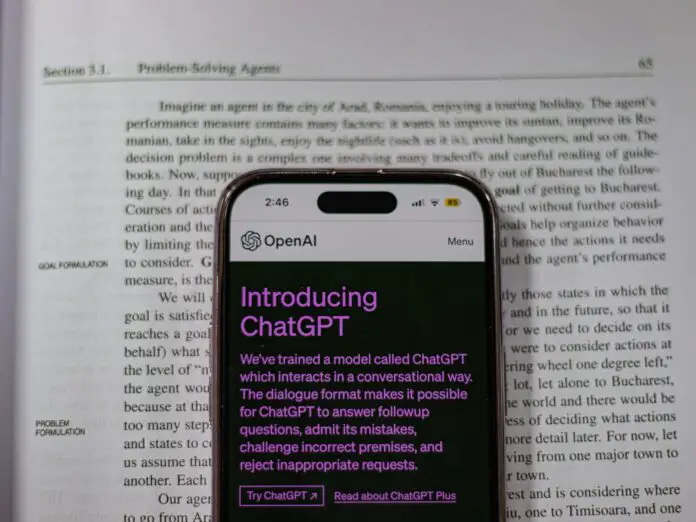
In today’s fast-paced world, keeping up with the latest research articles can be a daunting task. With an ever-increasing volume of scholarly publications, researchers and academics often find themselves overwhelmed by the sheer amount of information to process.
However, with the advent of artificial intelligence (AI) language models like ChatGPT, reading research articles has become more efficient and effective. In this article, ilovephd will explore how ChatGPT can be utilized as a powerful tool to enhance the process of reading and comprehending research articles.
Introduction to ChatGPT
ChatGPT is a state-of-the-art language model developed by OpenAI. It is designed to generate human-like text responses and engage in interactive conversations.
ChatGPT is trained on a vast corpus of text data from the internet, which enables it to understand and generate text on a wide range of topics.
One of the key features of ChatGPT is its ability to generate text based on prompts or questions provided by users, making it a versatile tool for a variety of tasks, including reading research articles.
Unlocking the Power of ChatGPT: A Guide to Reading Research Articles with Efficiency and Accuracy
1. Efficient Summarization
One of the challenges of reading research articles is dealing with their often lengthy and technical content.
ChatGPT can help researchers tackle this challenge by providing concise summaries of research articles. By simply inputting a research article’s abstract or key sections as a prompt, researchers can use ChatGPT to generate a summary that captures the main points and findings of the article.
This can save researchers time and effort by quickly providing them with an overview of the article’s content.
2. Contextual Understanding
Understanding the context of research articles is crucial for meaningful comprehension. ChatGPT can assist researchers in gaining a better understanding of research articles by generating text that provides context and explanations.
Researchers can input specific questions or prompts about unfamiliar concepts or technical jargon from the research article, and ChatGPT can generate explanations or definitions that help clarify the meaning of the text.
This can be especially useful for researchers who are new to a particular field or are reading articles outside of their expertise.
3. Personalized Assistance
Another valuable feature of ChatGPT is its ability to engage in interactive conversations. Researchers can use ChatGPT to ask questions, seek clarifications, or request additional information about research articles they are reading.
ChatGPT can provide responses based on the prompts, helping researchers obtain personalized assistance tailored to their specific needs.
This interactive approach can enhance the reading experience and facilitate a better understanding of research articles.
Unleash the power of ChatGPT,
To read research articles with no misstep.
Efficient summarization, language support,
Customization, and more, a research cohort.
Boost your productivity, enhance your insight,
Streamline your workflow with ChatGPT's might.
Stay up-to-date, stay ahead in the game,
Master research article reading, without any claim.
4. Language Support
Research articles are often written in different languages, and language barriers can pose challenges for researchers trying to access information in non-native languages. ChatGPT can help overcome this challenge by providing language support.
Researchers can input text in different languages as prompts, and ChatGPT can generate translations or explanations in the desired language, aiding researchers in reading and understanding research articles written in foreign languages.
5. Customized Applications
ChatGPT is a versatile tool that can be customized for specific research needs. Researchers can fine-tune ChatGPT with their own data, such as domain-specific research articles, to create a customized language model that is optimized for their research field.
This allows researchers to leverage the power of ChatGPT to generate more accurate summaries, context-specific explanations, and personalized assistance when reading research articles in their specific domain.
Summary
ChatGPT can be a valuable tool for researchers to enhance their reading and comprehension of research articles.
Its ability to provide efficient summarization, contextual understanding, personalized assistance, language support, and customization makes it a versatile and powerful resource.
By leveraging ChatGPT’s capabilities, researchers can streamline their research process, save time, and improve their understanding of research articles across various domains and languages.
As with any AI tool, it’s important to keep in mind that ChatGPT is not a substitute for critical thinking and human judgment.
While it can provide valuable assistance, researchers should always exercise their own discernment and verify the accuracy of the information generated by ChatGPT with reliable sources.
Stay up-to-date with the latest research findings with ChatGPT as your powerful tool –iLovePhD
